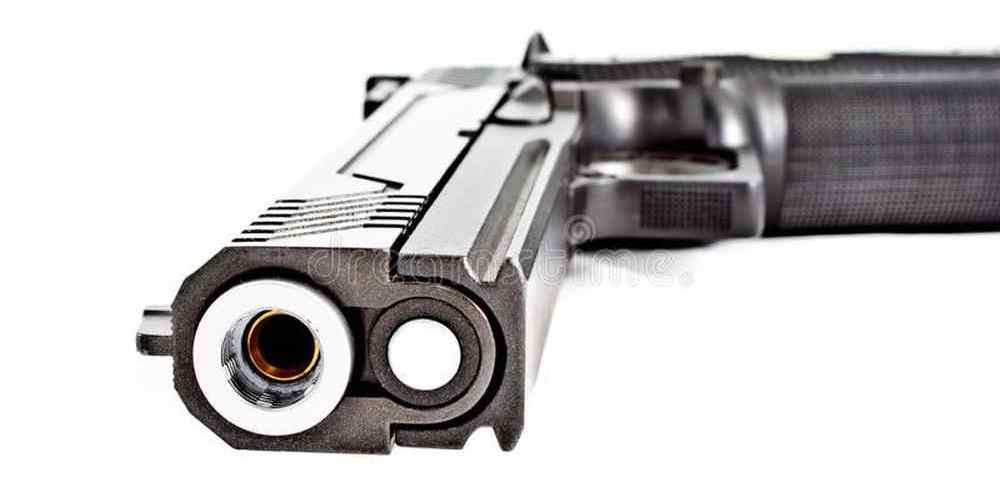“Balancing rights and safety in the city.”
Impact of Urban Gun Violence on Communities
The Second Amendment of the United States Constitution guarantees the right of citizens to bear arms. This right has been a topic of much debate, especially in urban areas where gun violence is a significant issue. The prevalence of guns in cities has led to numerous challenges for communities, including increased crime rates, fear among residents, and strained relationships between law enforcement and the public.
One of the main challenges of urban gun ownership is the impact it has on crime rates. Studies have shown that areas with higher rates of gun ownership tend to have higher rates of gun-related crimes. This correlation is particularly concerning in urban areas, where population density and socioeconomic factors can exacerbate the effects of gun violence. The easy access to firearms in cities makes it easier for individuals to commit crimes, leading to a cycle of violence that is difficult to break.
In addition to the direct impact on crime rates, urban gun ownership also contributes to a sense of fear and insecurity among residents. The presence of guns in a community can create a climate of fear, where residents feel unsafe in their own neighborhoods. This fear can have a negative impact on mental health and overall well-being, leading to increased stress and anxiety among residents. In some cases, the fear of gun violence can even prevent individuals from leaving their homes or participating in community activities, further isolating them from their neighbors.
Another challenge of urban gun ownership is the strained relationship between law enforcement and the public. In many urban areas, the police are seen as an occupying force rather than a source of protection. This perception is fueled by incidents of police brutality and misconduct, as well as a lack of trust between law enforcement and the communities they serve. The presence of guns in these communities only serves to heighten tensions, as residents may feel targeted or threatened by law enforcement officers who are armed.
Despite these challenges, there are solutions that can help address the issue of urban gun ownership. One potential solution is to implement stricter gun control measures, such as universal background checks and waiting periods for gun purchases. These measures can help prevent individuals with a history of violence or mental illness from obtaining firearms, reducing the likelihood of gun-related crimes in urban areas. Additionally, investing in community-based violence prevention programs can help address the root causes of gun violence, such as poverty, lack of access to education, and limited economic opportunities.
Ultimately, addressing the challenges of urban gun ownership requires a multifaceted approach that takes into account the complex factors that contribute to gun violence in cities. By implementing stricter gun control measures, investing in community-based programs, and fostering positive relationships between law enforcement and the public, we can work towards creating safer and more secure urban environments for all residents. The Second Amendment may guarantee the right to bear arms, but it is up to us as a society to ensure that this right is exercised responsibly and in a way that promotes the well-being of our communities.
Gun Control Measures in Urban Areas
The Second Amendment of the United States Constitution guarantees the right of citizens to bear arms. This right has been a topic of much debate, especially in urban areas where gun violence is a significant issue. While the Second Amendment protects the right to own guns, it also raises questions about how to regulate gun ownership in densely populated cities.
One of the challenges of urban gun ownership is the prevalence of gun violence. In cities like Chicago, Baltimore, and Detroit, gun violence is a daily reality for many residents. This has led to calls for stricter gun control measures to help reduce the number of guns on the streets. However, implementing these measures can be difficult due to the Second Amendment’s protection of the right to bear arms.

Another challenge of urban gun ownership is the lack of resources for law enforcement agencies to effectively enforce gun laws. In many cities, police departments are understaffed and underfunded, making it difficult for them to crack down on illegal gun ownership. This lack of enforcement can lead to a proliferation of guns in urban areas, contributing to the high rates of gun violence.
Despite these challenges, there are solutions that can help address the issue of urban gun ownership. One solution is to implement universal background checks for all gun purchases. This would help prevent individuals with a history of violence or mental illness from obtaining guns legally. Additionally, implementing a national gun registry could help law enforcement agencies track the ownership of guns and crack down on illegal gun trafficking.
Another solution is to invest in community-based violence prevention programs. These programs work to address the root causes of gun violence, such as poverty, lack of education, and access to mental health services. By addressing these underlying issues, we can help reduce the demand for guns in urban areas and ultimately decrease rates of gun violence.
In addition to these solutions, it is important for lawmakers to work with gun owners and advocacy groups to find common ground on gun control measures. By engaging in open and honest dialogue, we can work towards solutions that protect the Second Amendment while also ensuring the safety of our communities.
In conclusion, the issue of urban gun ownership is a complex and challenging one. While the Second Amendment protects the right to bear arms, it also raises questions about how to regulate gun ownership in densely populated cities. By implementing universal background checks, investing in community-based violence prevention programs, and engaging in open dialogue with gun owners, we can work towards solutions that help reduce rates of gun violence in urban areas. It is important for all stakeholders to come together to find common ground and work towards a safer future for our communities.
Role of Law Enforcement in Regulating Urban Gun Ownership
The Second Amendment of the United States Constitution guarantees the right of citizens to bear arms. This right has been a topic of much debate, especially in urban areas where gun violence is a significant issue. Law enforcement plays a crucial role in regulating urban gun ownership to ensure the safety of the community.
One of the challenges law enforcement faces in regulating urban gun ownership is the prevalence of illegal firearms. Criminals often obtain guns through illegal means, such as straw purchases or theft. These illegal guns can be used in violent crimes, putting the community at risk. Law enforcement agencies must work diligently to track down and confiscate these illegal firearms to prevent further violence.
Another challenge is the lack of resources available to law enforcement to effectively regulate urban gun ownership. Many police departments are understaffed and underfunded, making it difficult to enforce existing gun laws. Additionally, the legal landscape surrounding gun ownership is complex, with different laws at the federal, state, and local levels. Law enforcement officers must navigate these laws to ensure they are enforcing them correctly.
Despite these challenges, there are solutions that law enforcement can implement to regulate urban gun ownership effectively. One solution is to increase collaboration between law enforcement agencies and community organizations. By working together, law enforcement can better understand the needs and concerns of the community and tailor their efforts to address them. Community organizations can also help educate residents about the importance of responsible gun ownership and the consequences of illegal gun possession.
Another solution is to implement stricter background checks for gun purchases. Background checks can help prevent individuals with a history of violence or mental illness from obtaining firearms. By conducting thorough background checks, law enforcement can help keep guns out of the hands of those who may pose a danger to themselves or others.
Additionally, law enforcement can work to improve gun safety education in urban areas. Many incidents of gun violence are the result of accidents or negligence. By educating residents about proper gun storage and handling, law enforcement can help prevent these tragedies from occurring. Gun safety education can also help reduce the stigma surrounding gun ownership and promote responsible gun ownership practices.
In conclusion, law enforcement plays a vital role in regulating urban gun ownership to ensure the safety of the community. Despite the challenges they face, there are solutions that law enforcement can implement to effectively regulate gun ownership in urban areas. By working collaboratively with community organizations, implementing stricter background checks, and improving gun safety education, law enforcement can help reduce gun violence and create safer communities for all residents.
Community Initiatives to Address Gun Violence
The Second Amendment of the United States Constitution guarantees the right of citizens to bear arms. This right has been a topic of much debate, especially in urban areas where gun violence is a significant issue. Urban gun ownership presents unique challenges that require innovative solutions from the community.
One of the main challenges of urban gun ownership is the prevalence of illegal firearms. Many guns used in crimes are obtained through illegal means, such as straw purchases or theft. This makes it difficult for law enforcement to track and regulate these weapons. Community initiatives can play a crucial role in addressing this issue by promoting responsible gun ownership and encouraging individuals to report illegal firearms.
Another challenge of urban gun ownership is the lack of access to mental health resources for individuals at risk of committing gun violence. Many perpetrators of mass shootings have a history of mental illness, yet they often do not receive the help they need. Community initiatives can work to destigmatize mental health issues and provide resources for those in need. By addressing the root causes of gun violence, such as mental illness, communities can help prevent future tragedies.
In addition to addressing the root causes of gun violence, community initiatives can also focus on promoting gun safety and education. Many accidents involving firearms could be prevented with proper training and education. By offering gun safety courses and promoting responsible gun ownership, communities can help reduce the number of accidental shootings.
One successful community initiative that has been implemented in some urban areas is the creation of gun buyback programs. These programs allow individuals to turn in their firearms in exchange for cash or other incentives. By removing guns from the streets, these programs help reduce the likelihood of gun violence. Additionally, they provide a safe and legal way for individuals to dispose of unwanted firearms.
Another effective community initiative is the implementation of violence prevention programs in schools and community centers. These programs aim to educate individuals about the consequences of gun violence and provide alternatives to resolving conflicts peacefully. By teaching conflict resolution skills and promoting positive behavior, these programs can help reduce the likelihood of gun violence in urban areas.
Overall, community initiatives play a crucial role in addressing the challenges of urban gun ownership. By promoting responsible gun ownership, providing mental health resources, and offering education and training, communities can help reduce the prevalence of gun violence. Through collaborative efforts and innovative solutions, urban areas can become safer and more secure for all residents.
Mental Health and Urban Gun Ownership
The Second Amendment of the United States Constitution guarantees the right of citizens to bear arms. This right has been a topic of much debate, especially in urban areas where gun violence is a significant concern. Urban gun ownership presents unique challenges, particularly when it comes to mental health.
One of the main concerns with urban gun ownership is the potential for individuals with mental health issues to have access to firearms. Studies have shown that individuals with mental health disorders are at a higher risk of committing acts of violence, including suicide and homicide, when they have access to guns. This is a serious issue that must be addressed in order to ensure the safety of urban communities.
One possible solution to this problem is to implement stricter background checks for individuals looking to purchase firearms. By screening for mental health issues during the background check process, it may be possible to prevent individuals with mental health disorders from obtaining guns. This could help to reduce the risk of gun violence in urban areas and protect the safety of the community.
Another potential solution is to provide better access to mental health services for individuals in urban areas. By addressing mental health issues early on and providing support and treatment for those in need, it may be possible to reduce the risk of violence among individuals with mental health disorders. This could help to create a safer environment for everyone in the community.
It is also important for gun owners in urban areas to store their firearms safely and securely. By keeping guns locked up and out of reach of children and individuals with mental health issues, it may be possible to prevent accidents and reduce the risk of gun violence. Responsible gun ownership is essential in urban areas where the risk of violence is higher.
In addition to these solutions, it is important for urban communities to come together to address the issue of gun violence. By working together to create a culture of safety and responsibility, it may be possible to reduce the risk of violence and create a safer environment for everyone. This could involve community outreach programs, education initiatives, and support for individuals in need.
Overall, the issue of mental health and urban gun ownership is a complex and challenging one. However, by implementing stricter background checks, providing better access to mental health services, promoting responsible gun ownership, and working together as a community, it may be possible to reduce the risk of gun violence in urban areas. It is important for all stakeholders to come together to address this issue and work towards creating a safer and more secure environment for everyone.




